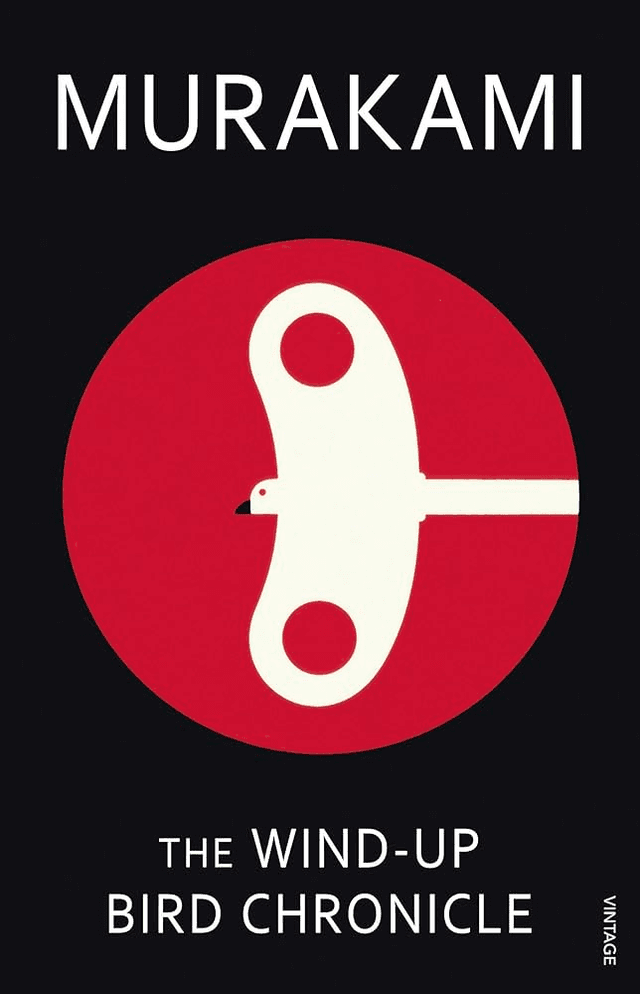The Wind-Up Bird Chronicle vs. 1Q84
The Wind-Up Bird Chronicle
In a Tokyo suburb, a young man named Toru Okada searches for his wife’s missing cat—and then for his wife as well—in a netherworld beneath the city’s placid surface. As these searches intersect, he encounters a bizarre group of allies and antagonists. Gripping, prophetic, and suffused with comedy and menace, this is one of Haruki Murakami’s most acclaimed and beloved novels.
1Q84
She has entered, she realizes, a parallel existence, which she calls 1Q84 —“Q is for ‘question mark.’ A world that bears a question.” Meanwhile, an aspiring writer named Tengo takes on a suspect ghostwriting project. He becomes so wrapped up with the work and its unusual author that, soon, his previously placid life begins to come unraveled. As Aomame’s and Tengo’s narratives converge over the course of this single year, we learn of the profound and tangled connections that bind them ever closer: a beautiful, dyslexic teenage girl with a unique vision; a mysterious religious cult that instigated a shoot-out with the metropolitan police; a reclusive, wealthy dowager who runs a shelter for abused women; a hideously ugly private investigator; a mild-mannered yet ruthlessly efficient bodyguard; and a peculiarly insistent television-fee collector.
Reviews
Reviews
| Item | Votes | Upvote |
|---|---|---|
| Murakami at his best | 1 | |
| Long, captivating read | 1 |
| Item | Votes | Upvote |
|---|---|---|
| They cut out some chapters in the English translation | 1 |
| Item | Votes | Upvote |
|---|---|---|
| No pros yet, would you like to add one? | ||
| Item | Votes | Upvote |
|---|---|---|
| No cons yet, would you like to add one? | ||
Frequently Asked Questions
The Wind-Up Bird Chronicle is ranked higher on the list and is considered one of Haruki Murakami's most acclaimed novels. It features a gripping and prophetic narrative with a mix of comedy and menace, making it a favorite among fans. One of its pros is that it showcases Murakami at his best. However, some readers note that the English translation has omitted some chapters. On the other hand, 1Q84 offers a parallel existence with complex narratives and unique characters but does not have any user-generated pros or cons listed. Ultimately, the choice depends on your preference for narrative style and complexity.
1Q84 is significantly longer than The Wind-Up Bird Chronicle. 1Q84 spans three volumes and offers a more complex and intricate plot, while The Wind-Up Bird Chronicle, although also a long read, is more concise in comparison.
The Wind-Up Bird Chronicle is generally considered to have a more straightforward narrative compared to 1Q84. Although The Wind-Up Bird Chronicle delves into surreal and complex themes, its plot is easier to follow. In contrast, 1Q84 features interwoven narratives and a more convoluted plot structure, requiring more focus from the reader.
'The Wind-Up Bird Chronicle' by Haruki Murakami is about a young man named Toru Okada who searches for his wife’s missing cat—and then for his wife as well—in a netherworld beneath the city’s placid surface. As these searches intersect, he encounters a bizarre group of allies and antagonists. The novel is gripping, prophetic, and suffused with comedy and menace.
Pros of 'The Wind-Up Bird Chronicle' include that it showcases Murakami at his best and is a long, captivating read. However, a con is that some chapters were cut out in the English translation.
'1Q84' is a novel by Haruki Murakami. It follows the story of Aomame, who realizes she has entered a parallel existence she calls 1Q84, and Tengo, an aspiring writer who becomes entangled in a suspect ghostwriting project. As their narratives converge, the novel explores their profound and tangled connections with a variety of unique characters, including a dyslexic teenage girl, a mysterious religious cult, a reclusive wealthy dowager, a hideously ugly private investigator, a ruthlessly efficient bodyguard, and a peculiarly insistent television-fee collector.
'1Q84' is written by Haruki Murakami, a renowned Japanese author known for his distinct blend of fantasy and reality, often exploring themes of loneliness and existentialism.
The main themes in '1Q84' include parallel worlds, the nature of reality, love and connection, and the power of storytelling. The novel delves into how these themes interweave in the lives of its characters.
'1Q84' is unique for its intricate plot, rich character development, and the seamless blend of the fantastical with the mundane. The novel's structure, alternating between the perspectives of Aomame and Tengo, adds depth and complexity to the narrative.





















